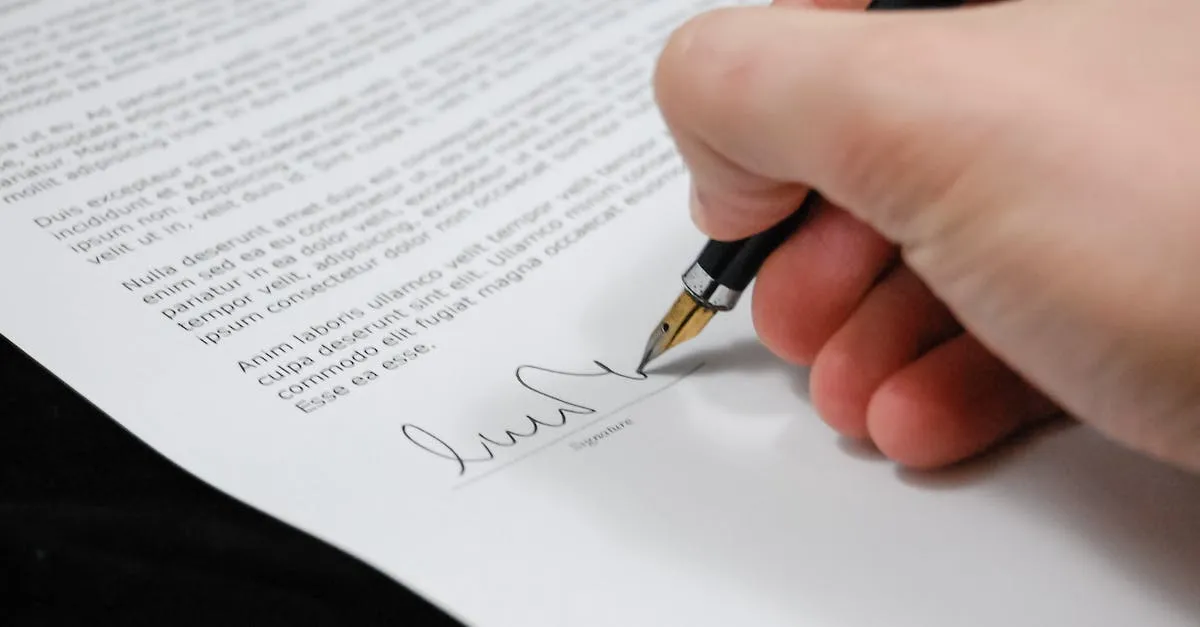How To Get An Eviction Off Your Record In Texas
Having an eviction on your record can make it very difficult to rent a new place in Texas. Luckily, there are steps you can take to have your eviction removed. This comprehensive guide will explain everything you need to know to get an eviction expunged from your record.
If you’re short on time, here is a quick summary: You can file a petition to expunge the eviction record 5 years after the case was dismissed. This involves submitting forms and evidence to the court to show the eviction was improper or justified. If approved, the court will seal the record.
Understanding Eviction Records in Texas
When it comes to renting a property in Texas, landlords often conduct background checks on potential tenants. These checks include looking into an applicant’s credit history, criminal records, and eviction records.
Understanding how eviction records work in Texas can help you navigate the rental process and determine the best course of action if you have an eviction on your record.
Background checks and rental applications
Landlords in Texas have the right to request a background check as part of the rental application process. This check typically includes a search for any previous evictions. A past eviction on your record may raise concerns for landlords, as it suggests a history of not fulfilling your financial obligations or not adhering to the terms of a lease agreement.
It is important to note that not all evictions are the same. Some evictions may be the result of legitimate disputes or misunderstandings, while others may be due to non-payment of rent or property damage. Landlords may take these factors into consideration when evaluating your rental application.
How long evictions stay on your record
In Texas, eviction records are kept by the county courts where the eviction was filed. These records are typically public and can be accessed by landlords or anyone conducting a background check. However, the length of time an eviction stays on your record can vary.
In most cases, evictions in Texas remain on your record for seven years. This means that potential landlords may see the eviction when they conduct a background check during that time period. It is worth noting that some background check companies may only report evictions from the past five years, but this can vary.
It is important to address any eviction on your record proactively. If you have successfully resolved the issues that led to the eviction, you may be able to provide documentation or references to support your case to potential landlords.
Additionally, maintaining a positive rental history and improving your credit score can help mitigate the impact of an eviction on your record.
For more information about evictions and rental records in Texas, you can visit the official website of the Texas Justice Courts at www.txcourts.gov. It is always recommended to consult with legal professionals for personalized advice regarding your specific situation.
Qualifying for an Eviction Expungement
If you have experienced an eviction in Texas, you may be wondering how to get it off your record. Fortunately, there are options available for those who qualify for an eviction expungement. In order to determine if you meet the requirements, you should consider the following factors.
Waiting period after dismissal
After an eviction case has been dismissed, there is typically a waiting period before you can apply for an expungement. This waiting period can vary depending on the circumstances of your case and the specific laws in your jurisdiction.
It is important to consult with an attorney or legal professional to understand the waiting period that applies to your situation.
Eligibility requirements
In order to qualify for an eviction expungement, you must meet certain eligibility requirements. These requirements can include factors such as:
- Demonstrating consistent rental payment history
- Completing any required community service or restitution
- Showing proof of financial stability
- Having no additional eviction cases or criminal convictions
Meeting these eligibility requirements is crucial to successfully expunging an eviction from your record. It is recommended to gather any necessary documentation and evidence to support your eligibility before proceeding with the expungement process.
Justifiable reasons for expungement
While each case is unique, there are some justifiable reasons that may increase your chances of obtaining an eviction expungement. These reasons can include:
- Errors or mistakes in the eviction process
- Proving that the eviction was unjust or unfair
- Showing evidence of improved rental behavior or responsible tenancy
- Demonstrating the negative impact of the eviction on your housing prospects
It is important to build a strong case and present compelling arguments to support your request for an expungement. Consulting with a legal professional can help you navigate the process and increase your chances of success.
For more information on eviction expungement in Texas, you can visit the Texas Bar Association website. They provide valuable resources and guidance on legal matters related to housing and tenant rights.
Filing the Expungement Petition
When it comes to getting an eviction off your record in Texas, one of the crucial steps is filing the expungement petition. This process involves several key subheadings that will guide you through the necessary steps.
Obtaining the correct forms
The first step in filing the expungement petition is to obtain the correct forms. It’s important to ensure that you have the most up-to-date and accurate forms, as outdated or incorrect forms may lead to delays or even rejections of your petition.
You can typically find these forms on the official website of the Texas courts or by visiting your local courthouse. Additionally, you may want to consult with an attorney specializing in expungement cases to ensure you have the right forms and understand the process fully.
Providing documentation
Once you have the necessary forms, the next step is to gather and provide the required documentation. This documentation will vary depending on the specifics of your eviction case, but common documents include the lease agreement, eviction notice, court records, and any other relevant paperwork.
It’s important to carefully review the expungement requirements and make sure you have all the necessary documentation to support your case. Providing comprehensive and accurate documentation will greatly increase your chances of a successful expungement.
Submitting to court
After obtaining the correct forms and gathering the required documentation, it’s time to submit your expungement petition to the court. Double-check that you have completed all the forms correctly and have included all the necessary supporting documents.
It’s always a good idea to make copies of everything for your records. Once you have everything in order, you can submit your petition to the appropriate court. Be mindful of any filing fees that may be required and make sure to follow the court’s specific instructions for submission.
It’s also important to keep track of any deadlines or hearings associated with your petition.
Remember, the process of getting an eviction off your record in Texas can be complex and time-consuming. It’s essential to familiarize yourself with the specific requirements and procedures in your jurisdiction.
If you’re unsure about any aspect of the expungement process, consider seeking legal advice from a qualified attorney.
Attending the Court Hearing
Receive notice to appear
Once you have been served with an eviction notice in Texas, you will also receive a notice to appear in court. This notice will provide you with the date, time, and location of your court hearing. It is crucial that you take this notice seriously and make sure to attend the hearing.
Failing to appear could result in a default judgment against you.
Present your case
When attending the court hearing, it is important to be prepared and present your case effectively. Gather any evidence or documentation that supports your defense and bring it with you to court. This could include proof of payment, communication records, or any other relevant information.
Present your case confidently and clearly, making sure to address any key points or arguments brought up by the landlord or their legal representation.
Court ruling
After both parties have presented their cases, the judge will make a ruling based on the evidence and arguments presented. The judge may make an immediate decision or take some time to review the case before making a ruling.
The court’s decision will determine whether the eviction will be removed from your record or if it will remain. It is important to respect the judge’s decision, even if it is not in your favor.
For more information on the eviction process in Texas, you can visit the official website of the Texas Courts.
Following Up After Expungement
Once you have successfully expunged an eviction from your record in Texas, it is important to take certain steps to ensure that your rental history is updated and reflects this positive change. Here are some key actions to consider:
Updating rental applications
When filling out rental applications, it is crucial to provide accurate information about your rental history. After expunging an eviction, you can confidently state that you have no evictions on your record. This can greatly improve your chances of being approved for a new rental property.
Remember to include any relevant documentation, such as the court order confirming the expungement, to support your application.
Reviewing credit reports
While an eviction may not appear on your credit report directly, it can still impact your creditworthiness indirectly. Landlords and property management companies often conduct thorough background checks, which may include reviewing your credit history.
Therefore, it is essential to regularly review your credit reports to ensure they accurately reflect your improved rental history. If you notice any discrepancies or outdated information, you can dispute them with the credit reporting agencies to have them corrected.
Answering questions about rental history
During the rental application process, there may be instances where you are asked about your rental history, including any past evictions. If you have successfully expunged an eviction, be honest and transparent about it.
Explain that the eviction has been expunged from your record, and provide any supporting documentation if necessary. Honesty is always the best policy, and demonstrating that you have taken steps to rectify past mistakes can help build trust with potential landlords.
It is important to note that while expunging an eviction removes it from public records, it does not erase the event from existence. Some landlords or property management companies may still consider the eviction during their decision-making process, even if it is no longer legally accessible.
However, by following the steps outlined above, you can proactively address any concerns and showcase your commitment to being a responsible tenant.
Conclusion
While having an eviction on your record in Texas can be an obstacle, you do have options for having it removed. If you follow the expungement process closely and make a strong case to the court, you can get a fresh start. With the eviction sealed from your record, you can rebuild your rental history.








